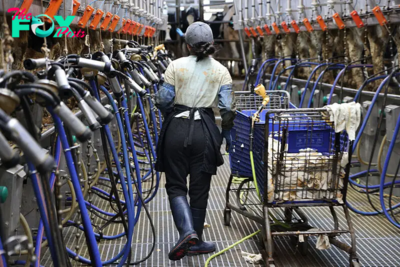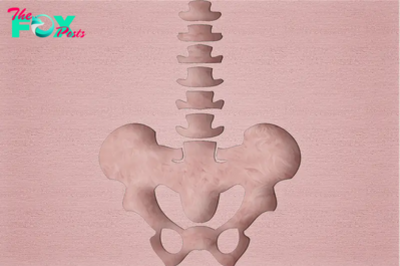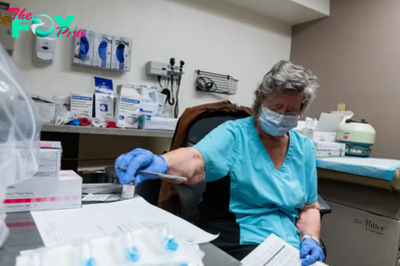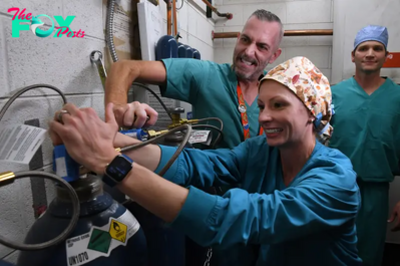Health
Nurses for medically fragile kids are underpaid and hard to find. Parents want the state to step in.
Nurses willing to care for medically fragile children and adults — including patients who use feeding tubes, can’t walk or speak, and rarely leave their homes — are hard to find in Colorado.
Amid a statewide nursing shortage so dire that even state mental institutions offer $14,000 signing bonuses, the lowest-paying nursing positions are going unfilled. That means many parents who have relied on “private duty nurses” for in-home care for their children and adult children are getting no help.
Colorado’s Medicaid program reimburses the agencies that employ these in-home nurses at some of the lowest rates in the nation, according to the Home Care and Hospice Association of Colorado. The rate for registered nurses in Colorado is $7.05 per hour below the national median, while the rate for licensed practical nurses is $9.04 below the median, according to the association’s analysis.
This puts Colorado in the bottom third of states and it’s why parents of children with extreme Health issues are asking lawmakers for a $15 million boost in state funding. The money would raise Medicaid rates that pay nurses’ salaries.
Parents of a 7-year-old girl with a heart defect who uses a tracheostomy tube to breathe have lost three in-home nurses to better paying jobs, leaving them on their own to resuscitate their daughter with a hand-held oxygen bag after a seizure. One nurse commented as she left that she could make more money caring for inmates in jail than kids in their homes, the girl’s father told lawmakers during a budget hearing this month.
A mother of an 11-year-old boy with a rare neurological disorder has had to do CPR on her own child. Galia Spychalska wheeled the boy to the state Capitol this month to ask for help. “The pediatric home health nursing shortage was very, very alive before COVID and the pandemic but now it’s really bad,” said Spychalska, who is among the parents who were trained as nurses and are reimbursed by Medicaid to care for their children. “We are in crisis. We haven’t had a wage increase in more than five years.”
And Amy Wiedeman, mother of a 13-year-old boy who is medically fragile and nonverbal, has been unable to hire a night nurse for five years. She works full time as a city planner for Centennial, then takes care of her son, who is fed through a tube in his stomach and has daily seizures, in the night.
“I am working two full-time jobs, 120 to 140 hours a week,” she said. “It’s very difficult to be in that situation.
“The reimbursement rates are not adequate at all, not adequate for home Health care workers to make ends meet and attempt to live in the state of Colorado. There’s an enormous amount of work that caregivers do,” Wiedeman said. “They’re working alone. They are working with fragile patients. They are incredibly important to families that have medically fragile people in their lives.”
The families testified during the Joint Budget Committee’s annual hearing in which anyone in the public can offer lawmakers their thoughts on state spending priorities. The public hearing is a deviation from the hours and hours of testimony the legislative committee hears all year from state agencies making budget requests.
The Home Care and Hospice Association, representing agencies around the state that hire private duty nurses and set their salaries based on the state’s Medicaid reimbursement rate, wants Colorado to add an additional $15 million to the state budget for private duty nursing. That’s on top of the $137 million proposed for the program next year.
The requested boost — totaling $30 million with the federal match — would be equivalent to about a $20 per hour increase in the reimbursement rate for private duty nursing.
“It’s a really tough budget and the state is going to have to make some really tough decisions,” said Eliza Schultz, the association’s lobbyist. “We think this should be a huge priority. It is $15 million and we know that’s a huge ask, but the benefits to the community are going to be so great.”
The association estimates that almost half of the cost would be offset by reducing the number of medically fragile people who are kept in hospitals, also at the expense of Medicaid, because they do not have someone to care for them at home.
☀️ READ MORE
Farms that feed migrating sandhill cranes in Colorado are in it for the long haul
Peter Moore: Why stop at SeaQuest?More endangered species that need rescuing by the Denver Zoo.
Colorado Democrats advance bills to protect transgender people’s use of a chosen name
Gov. Jared Polis’ budget request for the Colorado Department of Health Care Policy and Financing, which includes the Medicaid division, called for a 1% rate increase for private duty nursing and other Medicaid providers. But citing health care worker shortages, the Joint Budget Committee in January gave preliminary approval to a 2.5% across-the-board increase for Medicaid providers instead.
The Home Care Association wants a 38%-52% increase above Colorado’s current hourly rates.
The Joint Budget Committee has months of work left before making its final budget recommendations for next fiscal year, which begins July 1. The five-member committee has not yet made a decision on the request.
Other states have increased private duty nursing rates in recent years by 10%-20% while Colorado rates were raised 3% last year. Some states, including Texas and Arizona, have used federal coronavirus aid to raise pay for in-home nurses.
Colorado Medicaid’s reimbursement rates for private duty nursing are $52.53 per hour for RNs and $39.69 per hour for LPNs. The rate paid to agencies must also cover administrative costs and recruiting costs, cutting into nurses’ hourly wage. Pay for private duty nursing varies, but job postings in Colorado offer about $30 per hour and families say their nurses are paid as low as $25. Colorado’s minimum wage is $14.12 per hour.
-

 Health1d ago
Health1d agoPeople Aren’t Sure About Having Kids. She Helps Them Decide
-

 Health1d ago
Health1d agoFYI: People Don’t Like When You Abbreviate Texts
-

 Health1d ago
Health1d agoKnee problems tend to flare up as you age – an orthopedic specialist explains available treatment options
-

 Health2d ago
Health2d agoIs It Time to Worry About Bird Flu?
-

 Health2d ago
Health2d agoJohn Cena’s Workout Routine And Diet Plan: How The WWE Superstar Stays In Shape
-

 Health2d ago
Health2d agoSleep Doctors Share the 1 Tip That’s Changed Their Lives
-

 Health2d ago
Health2d ago13 Things to Say When Someone Asks Why You Haven’t Had a Baby Yet
-

 Health3d ago
Health3d ago8 Things You Should Do for Your Bones Every Day, According to Orthopedic Doctors


























